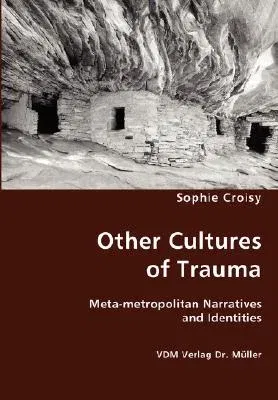Sophie Croisy
(Author)Other Cultures of TraumaPaperback, 17 September 2007

Qty
1
Turbo
Ships in 2 - 3 days
In Stock
Free Delivery
Cash on Delivery
15 Days
Free Returns
Secure Checkout
Print Length
192 pages
Language
English
Publisher
VDM Verlag Dr. Mueller E.K.
Date Published
17 Sep 2007
ISBN-10
383642584X
ISBN-13
9783836425841
Description
Product Details
Author:
Book Format:
Paperback
Country of Origin:
US
Date Published:
17 September 2007
Dimensions:
24.41 x
16.99 x
1.04 cm
ISBN-10:
383642584X
ISBN-13:
9783836425841
Language:
English
Location:
Saarbrucken
Pages:
192
Publisher:
Weight:
312.98 gm

